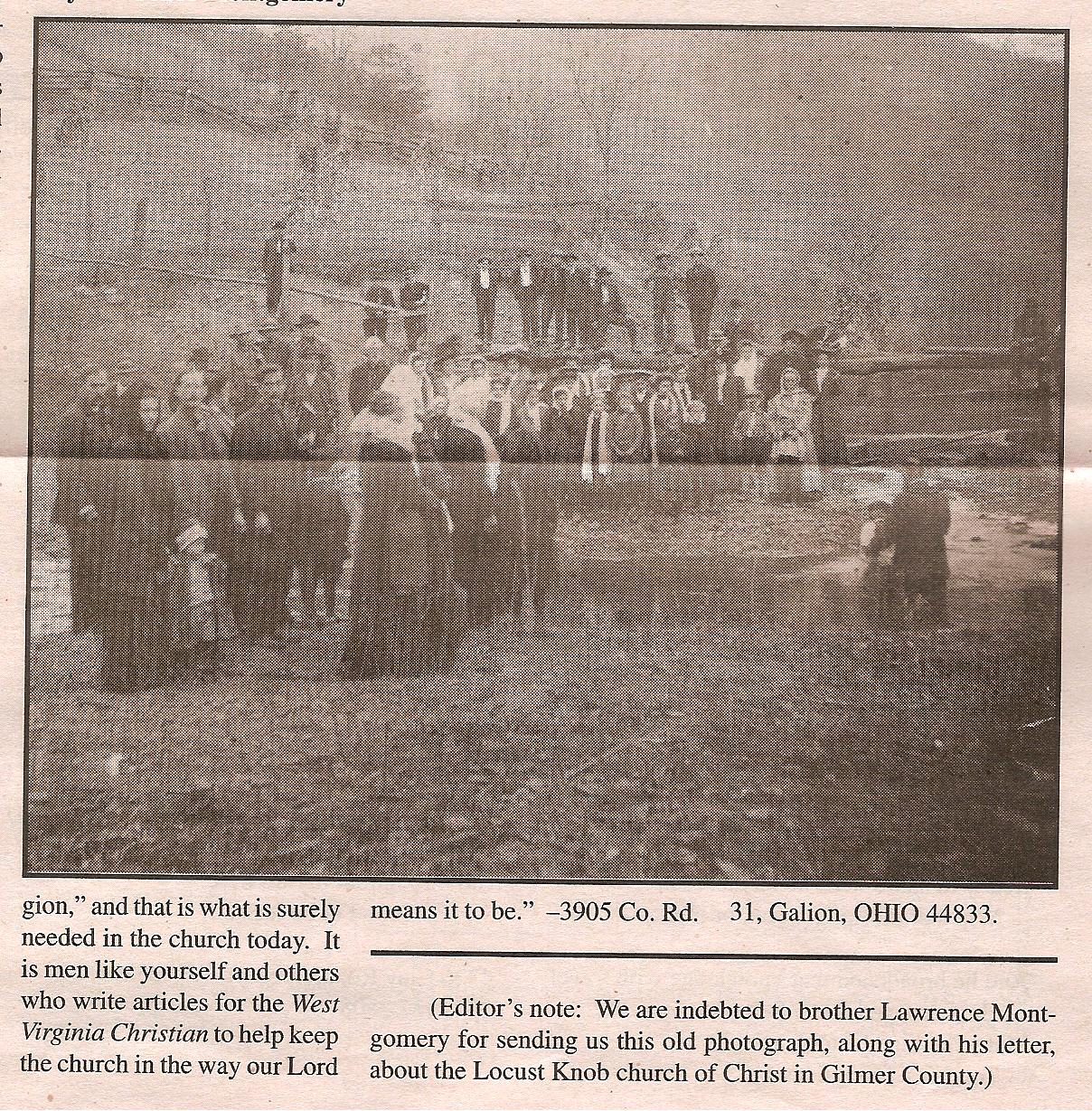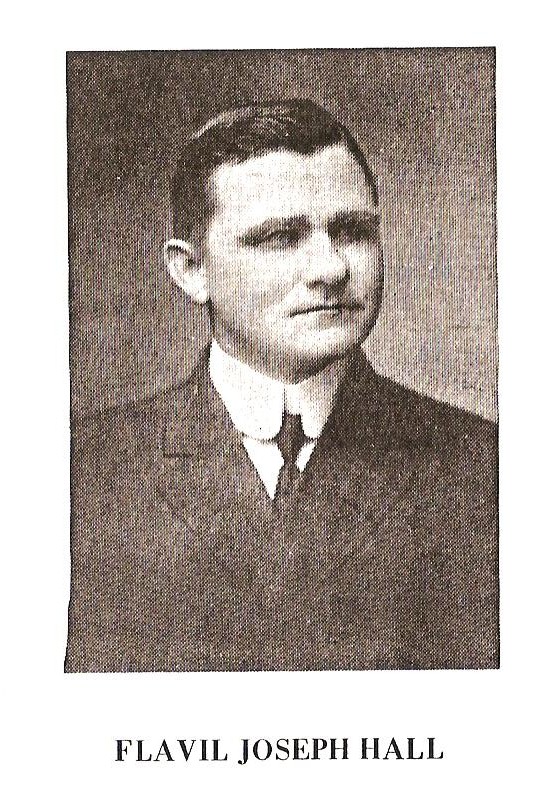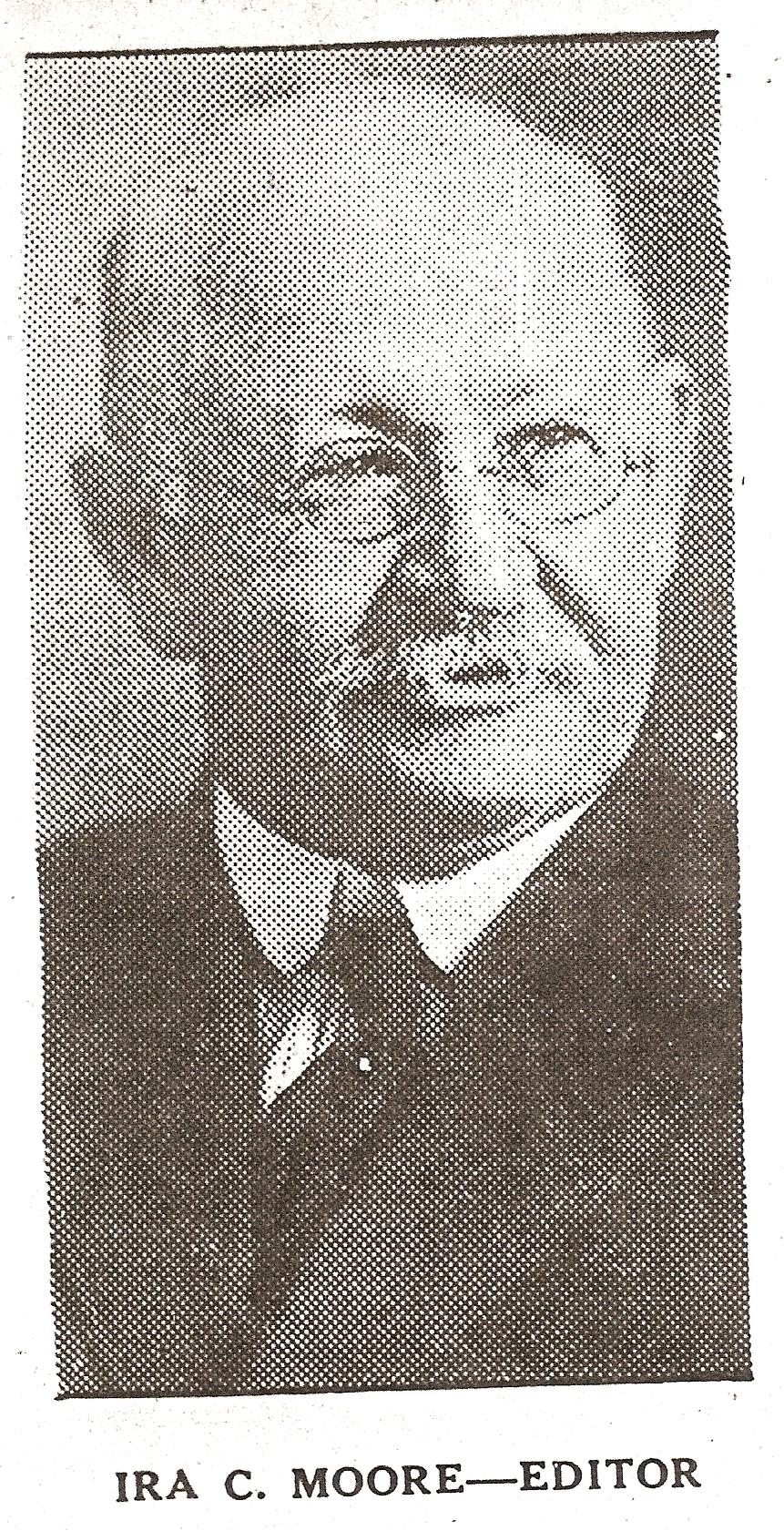Views on the Purpose of Baptism
by Bruce Daugherty
The question of one’s understanding of the purpose of baptism had been a point of contention between Austin McGary and David Lipscomb since the beginning of the Firm Foundation. (West, 2:407). The colorful McGary believed that Baptists were being brought into fellowship by a handshake rather than baptism for “the purpose of remission of sins.” As a result, he endorsed the practice of re-baptizing those who came to Churches of Christ from other fellowships, especially Baptists. In contrast to this understanding and practice, "Lipscomb had always held, as had James A. Harding . . ., that all persons who were immersed to get into Christ or to please God had completed all that God required in baptism." (Hooper, 194). Lipscomb believed McGary’s position to be an extreme hobby and opposed his practice of re-immersion under these conditions.

Did Leader writers follow Lipscomb’s opposition to re-baptism or did they support McGary’s contention that those coming out of a denominational background needed to be baptized again? Articles specifically addressing the re-baptism question and articles explaining baptism’s purpose will be examined for indications of Leader theology on the issue. Examination will also be made of any specific “cases” of individuals whose actions are offered as “proof” for or against re-baptism.
Flavil Hall proved to be loyal to the teaching he had received in the Nashville Bible School as he defended Lipscomb’s position on baptism in several articles. Hall appealed first to the restoration principle and what men like Scott, Campbell, Creath and others had done. ". . . they thought the Church of God was composed of the baptized penitent believers of the world wherever they were found. They never thought about teaching them they had to be immersed again to be Christians and members of “the church of the firstborn.” (Hall, Jan. 1919, 6). Hall believed this plea for obliterating “all sectarian distinctions, parties, party names and party creeds” to be “only Christians” had never been improved on.

In another article Hall replied to those who “seem anxious to show me there are no saved people among those baptized by Baptist preachers.” Hall wrote that the New Testament indicated people were baptized into five relations:
1. εις (into) Christ (Rom. 6:3).
2. εις (into) the name of the Father.
3. εις (into) the name of the Son.
4. εις (into) the name of the Holy Spirit (Matt.
28:19,20).
5. εις (into) the remission of sins (Acts 2:38).
Hall then asked, “Now, upon what ground can one legitimately single out the last relation and say one must understand it, but not the others, that his baptism may be valid?” (Hall, Mar. 1919, 6). In a defense of his position on the five relations, Hall used the example of Paul’s re-baptism of the disciples of John at Ephesus. They had been baptized “unto remission of sins” (Mk. 1:4), but they had to be immersed “εις (into) the name of the Lord Jesus” (Acts 19:5). (Hall, Apr. 1919, 6).
R. W. Arrington took issue with Hall’s applying this position to the Baptists. Arrington had made 18 public debates with their preachers and believed he knew their doctrine regarding salvation. "If they teach the truth we do not. If we teach the truth they do not. I have no desire whatever, to magnify their errors nor to place them in any other light than the plain, obvious meaning of their own teaching in speaking or writing." (Arrington, 6). Arrington explained:
". . . their teaching with reference to justification, regeneration, etc. is that these blessings with all like ones come as a direct gift of God in answer to prayer contingent upon repentance and faith as one and inseparable graces, and that God gives these conditioned upon a mental act only upon the part of man." Then Arrington declared, “But God’s Word nowhere teaches it.” Arrington was careful to make the distinction between the administrator and the subject for baptism. "I do not believe that the administrator effects the validity of the ordinance at all, but the faith of the subject, and faith cometh by hearing, and hearing by the Word of God. Arrington concluded by stating he was not writing for controversy but in a reasonable plea for consistency on the part of others. (Ibid.).
In response to Arrington, Hall pointed to the baptism of Alexander Campbell. Campbell, when baptized, had not understood everything that he later declared in his debate with Maccalla, but “the validity of his baptism depended upon faith in Christ and in all his teaching, not upon his understanding all, or even one promise in its fullness.” (Hall, May 1919, 6).
When Hall was accused of being a “Campbellite” for quoting from Campbell or bringing up the example of Campbell’s baptism, Hall replied: "It brings out the inconsistency of brethren who contend for something for which there is no “thus saith the Lord.” There is absolutely no “thus saith the Lord” for the idea that one must understand a promise before he can obey a command leading to that promise." (Hall July 1919, 6).
In an earlier discussion of the issue, Ira Moore wrote that there needed to be more precision in stating the issue involved. “The real issue in the so-called ‘rebaptism question’ has never, in my estimation, been stated correctly and discussed.” Moore went on to say that the question was not whether one had a complete or incomplete under-standing of the purpose or design of baptism. He expressed his belief that God would accept the one with the smallest knowledge and faith when baptized. This was not the issue with Moore. "There is a vast difference between having only a small degree of the right or scriptural conception of the design in being baptized, and having a head and heart full of such error concerning its purpose as to make the candidate dispute with and contradict the Lord on the purpose of it. The question is whether that one who has been taught error concerning salvation, and believes that his sins were forgiven in answer to prayer and through the direct operation of the Holy Spirit, and goes into the water to be immersed, with his heart full of such faith, is accepted of God when immersed, while Jesus’ words that teach him to be baptized, also teach him that “he that believeth and is baptized shall be saved.” (Moore, Believing Error, 8). Moore said when someone saw their error “and wished to become free from it by uniting with a congregation of the Church of Christ,” it was “right and proper” to accept their claim that “they were baptized with a scriptural faith” and not demand of them to be re-baptized. But individuals who believed they were saved “at the mourner’s bench” or by their “baptism in the Holy Spirit” and had been baptized because they had “already been pardoned or saved” were different cases. To receive such individuals into fellowship while they believed “the very opposite” of what Jesus said on baptism was something that Moore was not willing to risk and he did not want to encourage others by writing something on the subject which could be misconstrued. (Ibid, 9).

Harvey W. Jones took exception to Moore’s admonition. In a reply to the “champion re-baptist of the Christian Leader” Jones denied that he was “endorsing Baptist doctrine” when he accepted immersed believers in Christ who came “out from sectarianism to unite with us on the Bible.” (Jones, 4). Jones said Moore’s “hobby” was requiring “more of immersed believers who would come out of sectarianism than he does of our own converts who come out from the world.” Jones stated that the truth one held, “faith that Jesus was the Christ,” not error about baptism’s design or mistakes on “just when, or where or how the Lord pardons,” that saves. “So if any of us are saved when immersed it is in spite of the erroneous ideas we possess and because of the truth we know and obey (Heb. 5:9).”
But C. R. Nichol questioned Jones’ reasoning. Jones had stated in an earlier article: "So, if any one be a truly penitent believer in the Christ, with all the heart, he is begotten child of God before the birth act (immersion) takes place." Nichol said the problem was Jones’ insertion of the words “truly penitent” in John’s statement: “Whosoever believeth that Jesus is the Christ is begotten of God” (1 Jn. 5:1). Nichol stated: "I do not mean by this to intimate that one must not be a believer, as well as penitent, but the one thing I am after is, to learn the method of reasoning by which Brother Jones gets the word “penitent” connected with “belief,” in the quotation he makes." (Nichol, 1). No published statement by Jones replied to Nichol’s question but the point Nichol seemed to be making was that by the same reasoning Jones understood penitence to be connected to belief was the same reasoning by which others saw baptism connected to faith.
Ira Moore also wanted to help readers understand the term “sectarian baptism.” He said it was “almost universally applied to immersion performed by a denominational preacher, regardless of the faith and purpose of the bap-tized one.” This was incorrect in Moore’s view. "If there is any well-defined meaning in the expression, it must mean an immersion of one who has a sectarian faith concerning the purpose of baptism; for to have scriptural faith and purpose concerning it would make it a scriptural immersion, it matters not by whom performed." (Moore, Sectarian, 4).
Another term which Ira Moore felt needed precision was the expression “shaking them in,” a term which reverted back to the language of Austin McGary. "To talk about “shaking” people into the Church is to be guilty of inaccurate and very loose thinking and to use a term expressive of something that no one contends for. It is prejudicial, to say the very least and best of it." (Moore, Views, 4). For individuals who had been immersed into Christ for salvation but who had taken fellowship in some sectarian body, when they understood their error and sought “to be received into the fellowship of the local congregation,” this was not a “shaking in” of a sectarian, but the recognition of a “member heretofore in error.” He was not to have his word disputed, but to be accepted into the fellowship. (Ibid).
One individual whose baptism Ira Moore defended was H. A. Spradling. Spradling was the preacher for the Church of Christ meeting at Danville, West Virginia. Spradling had been raised and taught by his father who believed that baptism is “for remission of sins.” But the Spradling family was part of the “Christian Adventists” meeting in Charleston, West Virginia. After a twelve night public debate between Moore and Spradling on the subject of Adventist doctrines, Spradling “left the Adventists and took fellowship with us.” While Ira Moore had no problem accepting Spradling, this was not the case with everyone. C. W. Holley submitted this report to the Firm Foundation following a meeting held at Danville. "Closed at Danville, W. Va., Sept. 4. Preached on punishment of the wicked, the nature man and the kingdom. Mr. Spradling who has been preaching for this church of Christ for two or three years challenged me for a debate on the kingdom . . . Mr. Spradling was formerly an Advent preacher and was “shook in” with his Advent ideas." (Moore, Report, 4).
Ira Moore took exception to Holley’s report and especially to the phrase “shook in.” "Bro. Holley knows there is no such thing as a person being “shook in.” This is only a prejudicial phrase – one manufactured for the purpose of creating and fostering gangrenous prejudice and to injure without seeming to misrepresent." (Ibid). Moore had questioned Spradling about his baptism and his understanding of its purpose and had been satisfied with what Spradling had told him. Moore believed he was being “courteous enough and kind enough and fair enough to take Bro. Spradling’s word” on the matter. Moore expected the same kind of courtesy, kindness and fairness out of others. Moore went on to relate his accepting of Spradling: "Bro. Spradling was not “shook in” any more than any other one who was who returned from his errors and sought fellowship in a congregation of the Church of Christ. Believing that he told us the truth about his conversion (because we are not discerners of the spirit nor so smart that we could know more about the matter than he knew), when he asked for membership with us, we gladly accepted him." (Ibid.). For those who were concerned with his Adventist views, Moore shared what Spradling had promised Moore. "He had promised me before, that he would not preach on the punishment of the wicked - that they will be annihilated; and inquiries I have made of informed brethren where he has preached much, (Danville, W. Va. included), bring the information that he has not at any place taught his former doctrine of materialism concerning man, nor the doctrine of annihilation of the wicked." (Ibid.). Moore also shared with his readers that he had contacted Spradling concerning the kingdom issue. He was assured by Spradling that the differences between Spradling and Holley were concerning the identity of the Church and Kingdom, something that Holley equated as synonymous terms, but Spradling did not. But Spradling did not deny that the Church was founded on the day of Pentecost. This was good enough for Moore.
Later, Moore gave this testimony in writing Spradling’s obituary: "Bro. Spradling went at once to preach for the Church of Christ and was quite successful in winning souls to Christ. He made friends wherever he went, and some enemies. His worst enemies were some members of the Church, and they professed preachers. They seemed to think they knew more about what his faith and purpose was in being baptized than he could possibly know, and that he should not have been admitted into the fellowship of the Church without having been required to make the confession and being baptized by one of the preachers of the Church of Christ." (Moore, Obituary, 16). Moore concluded the obituary stating, “Bro. Spradling’s death is a personal loss to me.”
The purpose of baptism in discussion on re-baptism was a lively issue throughout the entire period. Flavil Hall was consistent with the instruction he had received from Lipscomb and Harding. Ira Moore demonstrated that he leaned toward McGary's view on the subject but he also acknowledged exceptions in individual cases. The issues needed clarity in expression and definition but even the “champion re-baptist of the Christian Leader” could see that each case had to be decided on its own merits. But the emphasis on baptism “for the remission of sins,” especially as held in debate with Baptists who denied this understanding of baptism, was a basic component of the theology of the Moore.
Works Cited
Arrington, R. W. "Valid Obedience" Christian Leader 33 (May 6, 1919): 6.
Hall, Flavil. "Field Notes and Helpful Thoughts," Christian Leader 33 (Jan. 7, 1919): 6.
________. "Field Notes and Helpful Thoughts," Christian Leader 33 (Mar. 18, 1919): 6.
________. "Field Notes and Helpful Thoughts," Christian Leader 33 (Apr. 8, 1919): 6.
________. "Field Notes and Helpful Thoughts," Christian Leader 33 (May 20, 1919): 6.
Hooper, Robert. Crying in the Wilderness. Nashville: David Lipscomb University, 1979.
Jones, Harvey W. "Truth Against Error" Christian Leader 29 (Feb. 2, 1915): 4.
Moore, Ira C. "Can One be Saved by Believing and Obeying Error?" Christian Leader 29 (Jan. 12, 1915): 8.
_______. "Sectarian Baptism" Christian Leader 35 (Apr. 5, 1921): 4.
_______. "Editorial Views and Reviews" Christian Leader 38 (Aug. 12, 1924): 4.
_______. "Bro. C. W. Holley's Report and 'Mr. Spradling'," Christian Leader 46 (Nov. 1, 1932): 4.
_______. "Obituary" Christian Leader 50 (July 7, 1936): 16.
Nichol, C. R. "When is One a Child of God?" Christian Leader 29 (Feb. 2, 1915): 1.
West, Earl I. The Search for the Ancient Order, vol. 2. Indianapolis: Religious Book Service, 1950.
